



Theme
9JJ Admission to Medicine and Postgraduate Training Programmes
INSTITUTION
Keio University School of Medicine, Department of Neuropsychiatry
University of Tsukuba, Mito Kyodo General Hospital
◆Japanese medical education provides six-year undergraduate programs.
◆To accept individuals with more diverse backgrounds and social maturity, graduate entry programs (GEP) in medical education could be one of the solutions.
◆There have been very few occasions among major stakeholders including medical professionals, general public, and policy makers to meet together to discuss this in Japan.
◆A series of symposiums on introduction of GEP have been held since 2012. This study aimed to investigate any changes of perceptions or opinions about GEP.
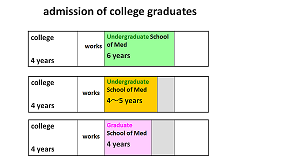
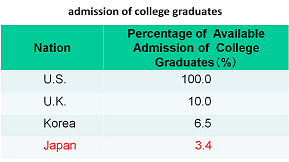
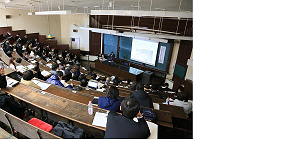
◆Paper-based surveys were administered after each symposium on the participants’ changes of understanding of and opinions about GEP before and after the symposium.
◆We also examined the influence of background such as medical professionals, non-medical individuals, and students in general by cross tables. A five-point Likert scale was used (1:strongly agree. 5:strongly disagree)
◆A total of 97 responded to the surveys.
◆Among 89, 36 had previous knowledge about GEP, uninfluenced by background.
◆Out of 87, 65 reported their understanding of GEP changed, of whom 34 (52%) were non-medical individuals while 19 (29%) were medical professionals (p=0.0068).
◆In addition, 32 (54%) of 59 changed their opinion about introduction of GEP after the symposium, influenced by background (p<0.001).
◆As post-symposium opinions, non-medical individuals chose creating new schools with GEP, while most of medical professionals preferred creating GEPs in existing schools.
Change of knowledge and opinions about graduate-entry systems of medical education.
1.“Before the symposium, had you a knowledge of GEP?”
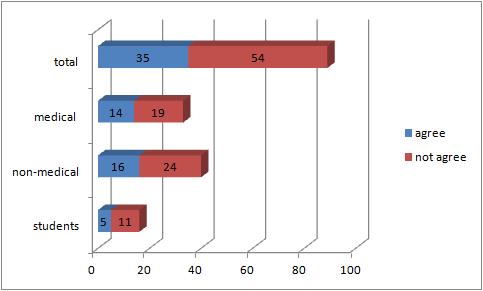
2.“After the symposium, have your knowledge and opinions about GEP changed?”
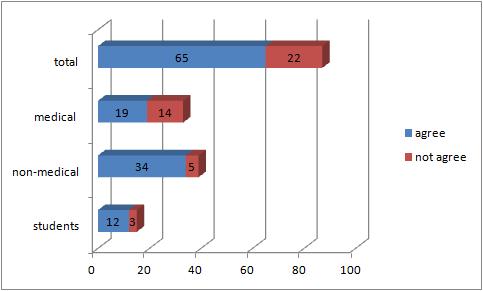
The opinions about the goal of GEP of medical education in Japan
1.“Which is your opinion about the appropriate goal of GEP in Japan?”

No.1 “Some of the undergraduate schools should have GEP on campus.”
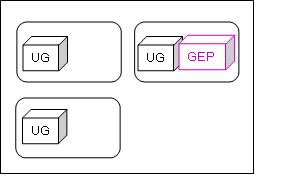
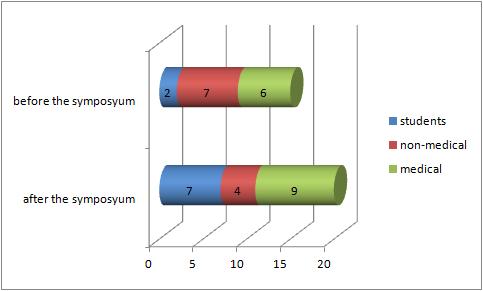
No.2 “GEP medical schools should be newly created “
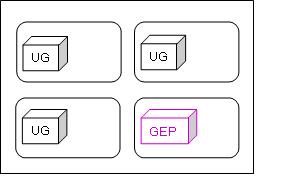
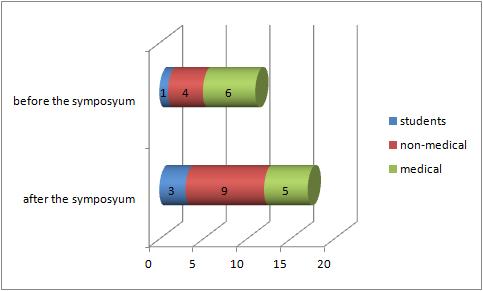
2.How much of the respondents changed their opinions about the goal?
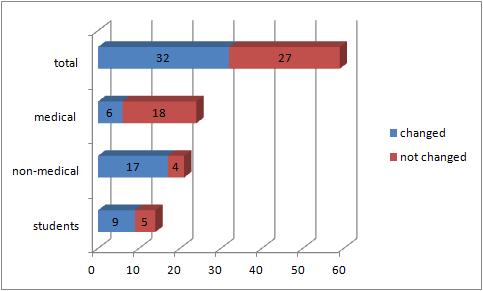
The series of symposiums had impact on the participants’ perceptions on GEP. With the symposium, those of non-medical individuals changed positively.
Vigorous efforts are needed to provide information and occasions for discussion among stakeholders on GEP in Japan towards national consensus.
We express our special thanks to Dr. Karita K (Kyorin University, School of Medicine).
 Send Email
Send Email